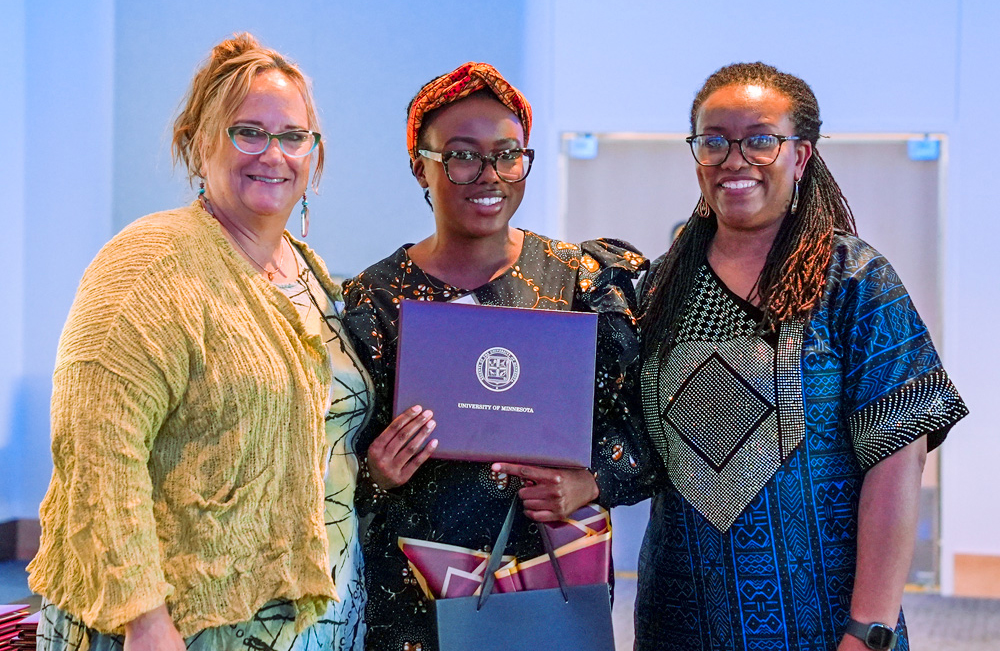ICI celebrated the accomplishments of nearly three dozen graduates of the Minnesota Leadership Education in Neurodevelopmental Disabilities (MNLEND) program on May 23 at the Norway House in Minneapolis.
The 2023-24 class includes 28 fellows who earned full certificates, along with five medium-term trainees who joined the program for a more limited, focused experience. Fellows come from a wide range of University of Minnesota academic disciplines, from beyond the university in disability-related professions, or because they have personal experience with disability, either themselves or through a family member. In addition to lectures and group discussions about critical topics in the field throughout the academic year, fellows choose hands-on projects that directly contribute to greater inclusion of people with neurodevelopmental and related disabilities in their communities.
“It’s an extremely rare opportunity to have 15 different academic disciplines together talking through issues and trying to problem-solve,” ICI Director Amy Hewitt, herself a graduate of an Indiana LEND program, said to the graduates. “What a unique opportunity it is to be in a room or on Zoom every week with people from such diverse backgrounds.”
As part of the celebration, fellows’ reflections on the program were shown via a pre-recorded short video .
“Before LEND, I was focused only on the service delivery part of advocacy,” said Mahdi Warsama (MNLEND 23-24). “Now I am more conscious about the history of disability in the United States and the different needs of people with neurodevelopmental disabilities...so I am more aware of how to navigate disability systems.”
Fanny Fernandez (MNLEND 23-24) shared that as a mother of children with disabilities from South America, she was never exposed to thoughtful conversations about disability and mental health.
“I’ve learned a lot, and this is just the beginning, because there is more to come,” she shares on the video.
In her remarks to graduates, Hewitt praised the fellows’ grasp of MNLEND’s core principle, the need to engage people with disabilities themselves in meaningful ways in all of the work they do, from providing services to developing policy or conducting research.
“You have the skills to be really significant leaders in this industry,” she said.
Hewitt also noted the ways in which fellows from different professions, which often have very different views about disability, worked together.
“It’s a difficult time in the United States and in the world, and we talked a lot about difference and conflict in LEND because everybody doesn’t agree on the best way to support people with autism, people with intellectual and developmental disabilities, and other neurodevelopmental disorders,” she said. “And when we don’t agree, that doesn’t mean we can’t learn from one another, and if there is anything that we saw this year, it’s how you all taught one another. You talked about and recognized the things you disagreed about, you learned how to disagree respectfully, and you learned how to be OK that we all don’t approach life in the same way, and we all don’t approach supports for people with significant disabilities in the same way. And yet you all learned to think differently and to expand beyond where your experiences and your profession had led you before you arrived.”
View Original Article










